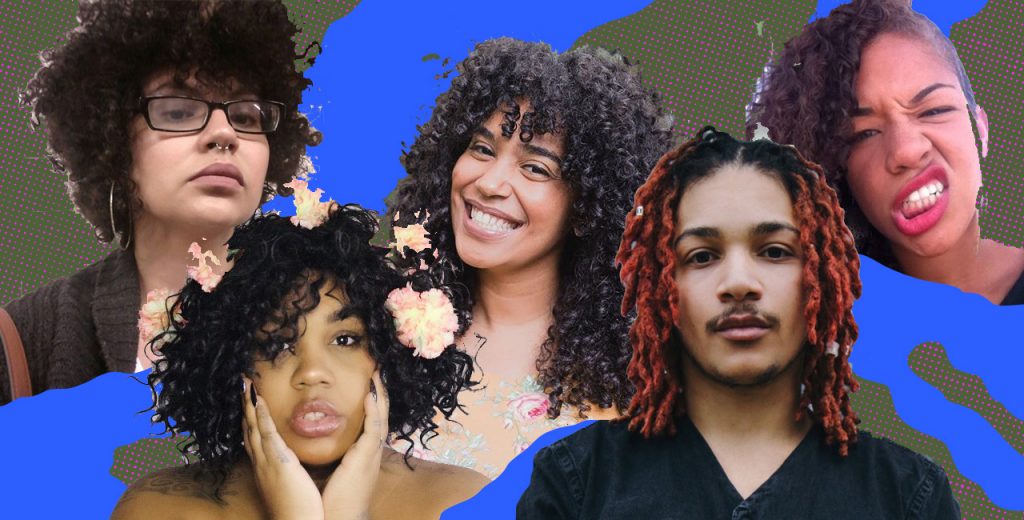You wouldn’t know it if you tuned into Spanish-language media, but the African Diaspora has played a prominent role throughout Latin America and in Latino communities in the United States. You can feel this influence in everything from food to music to language to religion. But as some aspire toward whiteness, the contributions of Afro Latinos have been swept under the rug. And a lack of representation (especially positive portrayals) has even led some Afro Latinos to internalize this anti-Blackness.
While there’s still a long way to go until we reach parity, Afro Latinos are fighting for representation and inspiring us along the way. One of the ways they have brought our stories to light is through poetry, a form of self-expression that Latinos are using to raise awareness about Afro-Latino’s experiences.
Below, check out five poems about Afro Latinidad that will make you feel seen.
"Negra Bella"
The daughter of a Dominican mother and an African-American father, Sharee Yveliz grew up feeling neither Latina enough or Black enough. But as she found her place, she began encouraging others to love the skin they’re in. As a result, we have this poignant poem titled “Negra Bella.”
If you’ve ever been told you’re pretty for a morena, been criticized for your “pelo malo,” or been encouraged to seek a significant other that will help you “mejorar la raza,” then this poem will ring true to you. In this piece, she empowers viewers to forget all those messages and to live up to their own ideals.
"On Realizing I Am Black"
“On realizing I am Black. 1. What the fuck?” Gabriel Ramirez starts with a little humor thrown in before breaking down how embracing all of his identities made him feel at home. The Dominican-American poet, playwright, and activist explains how in the United States, Blackness is defined through certain terms, and how this can end up excluding Afro Latinos. But he also drew attention to the ways that Latinos reject Blackness.
“My grandfather smiled in the faces of my Black friends, like he had a lynch mob in his back pocket. His teeth, the 13th, 14th, 15th amendment shredded into 36 different pieces of bigotry,” he says.
This powerful poem will resonate with anyone who had to learn about what it means to be Black.
“Another Hashtag, Another Mourning”
As Afro Puerto Rican Jackie Torres addresses the deaths of African Americans at the hands of police in “Another Hashtag, Another Mourning,” she’s not only discussing a critical issue that replays in the United States, she’s also using this storytelling method to draw attention to anti-Blackness within Latino communities.
“I really wanted this piece to capture the sense of collective mourning that I think most Black people feel in the wake of a police shooting; coupled with being an Afro-Latina surrounded by non-black Latinos who don’t understand the gravity of that feeling,” Torres says.
"Off White"
Venessa Marco – an Afro Latina of Puerto Rican and Cuban descent – is bold in her poem, titled “Off White.” With this piece, she speaks about what it’s like to be a lighter-skinned Black woman, and how the comments she received were still damaging to her self esteem. “You’re pretty for Black,” she says. “You not Black enough. You better race. You exotic. Wifey material.”
Her poem reminds us that Blackness doesn’t just look one way, and we should celebrate it in all its forms.
"Afro Latina"
Poet Elizabeth Acevedo‘s debut novel, The Poet X, follows an Afro-Dominican teen growing up in Harlem. The book is for Afro Latinas who never feel seen. Her poetry similarly tackles these same issues. In “Afro Latina,” she talks about how she gave up Spanish, her first language, after realizing her peers didn’t understand it or her. “So I rejected habichuela and mangu, much preferring Happy Meals and Big Macs, straightening my hair in imitation of Barbie, I was embarrassed by my grandmother’s colorful skirts and my mother’s [broken English], which cracked my pride when she spoke,” she says. “So shit, I’d poke fun at her myself, hoping it’d lessen the humiliation.”
As the poem builds, she captures her journey to self acceptance.




